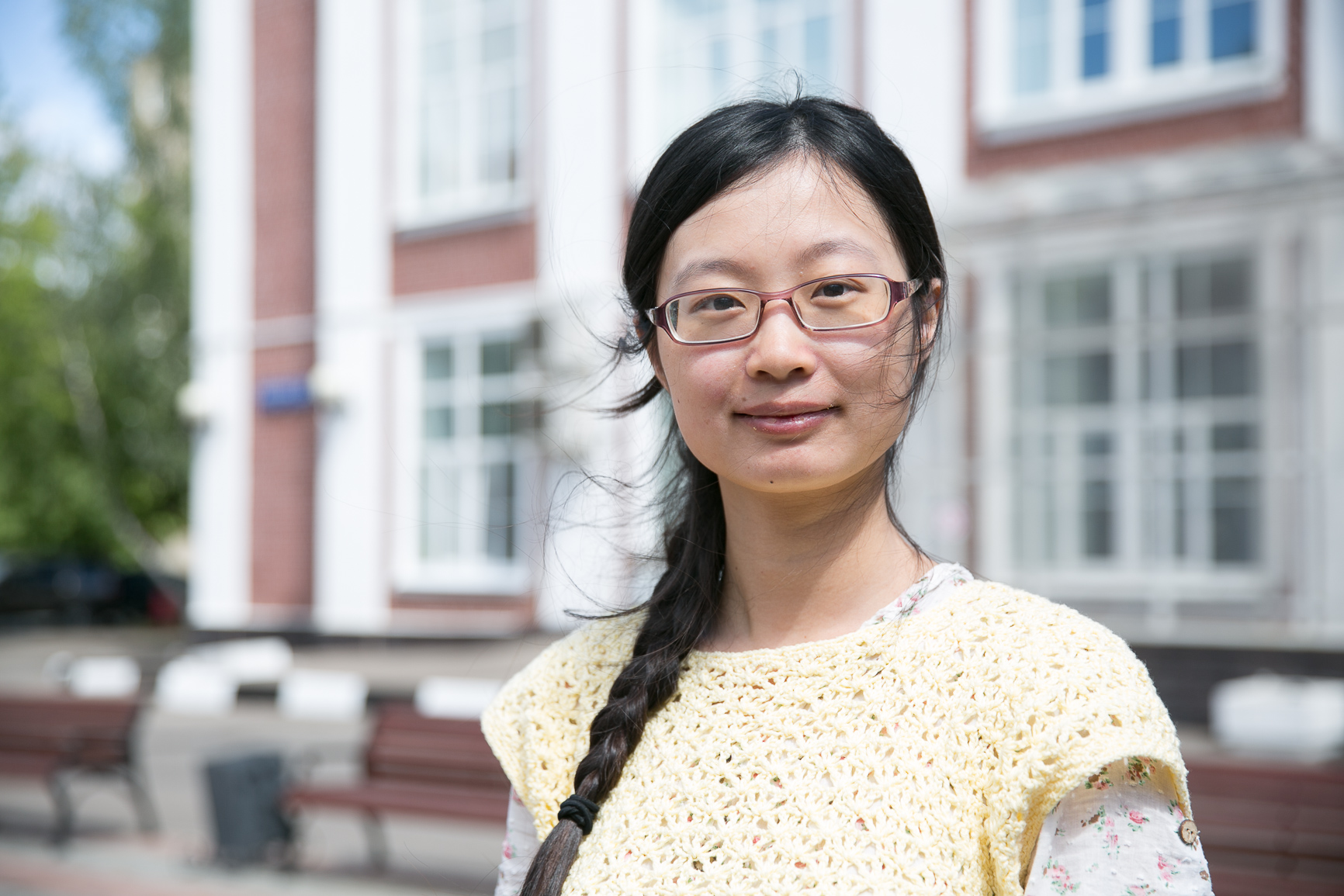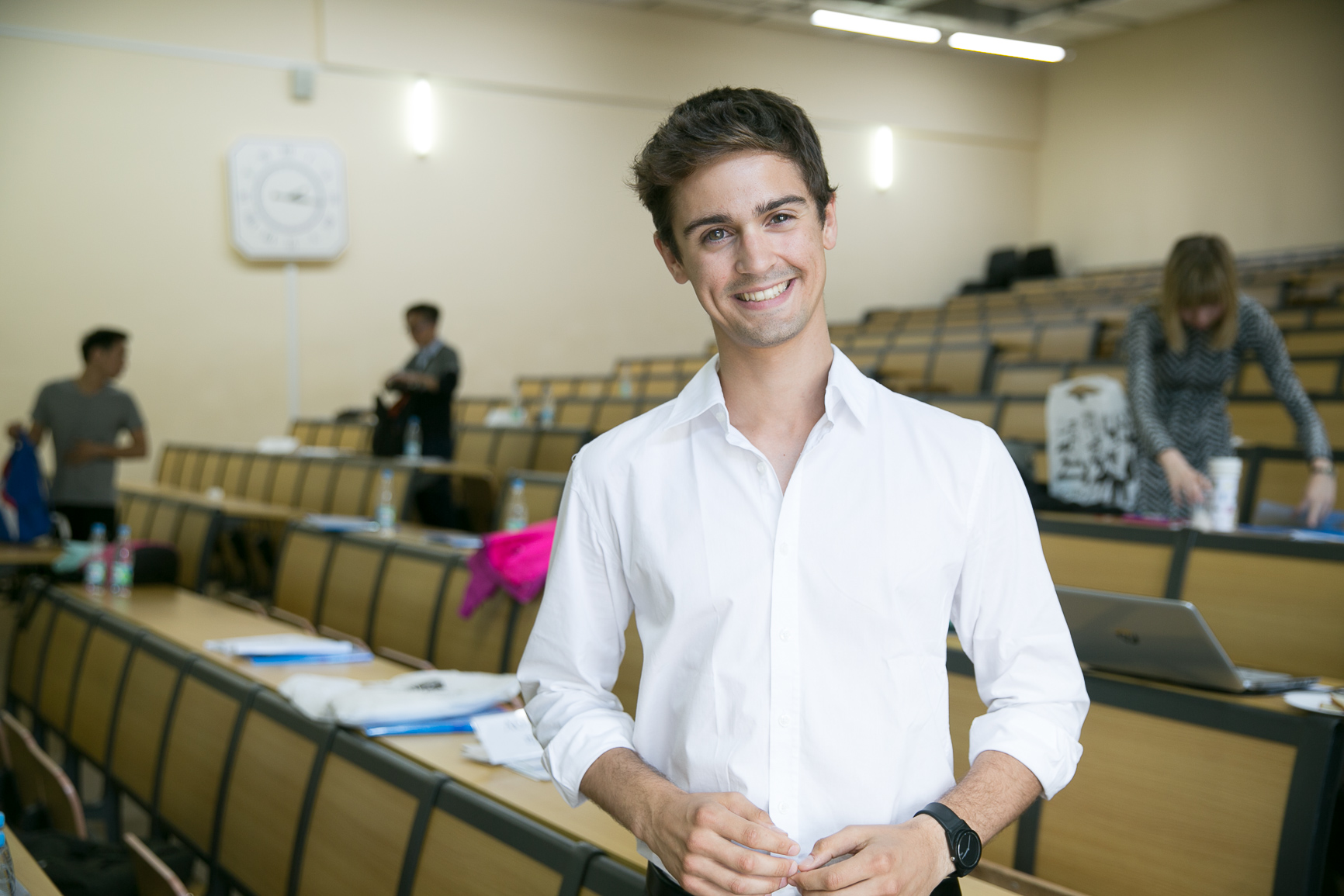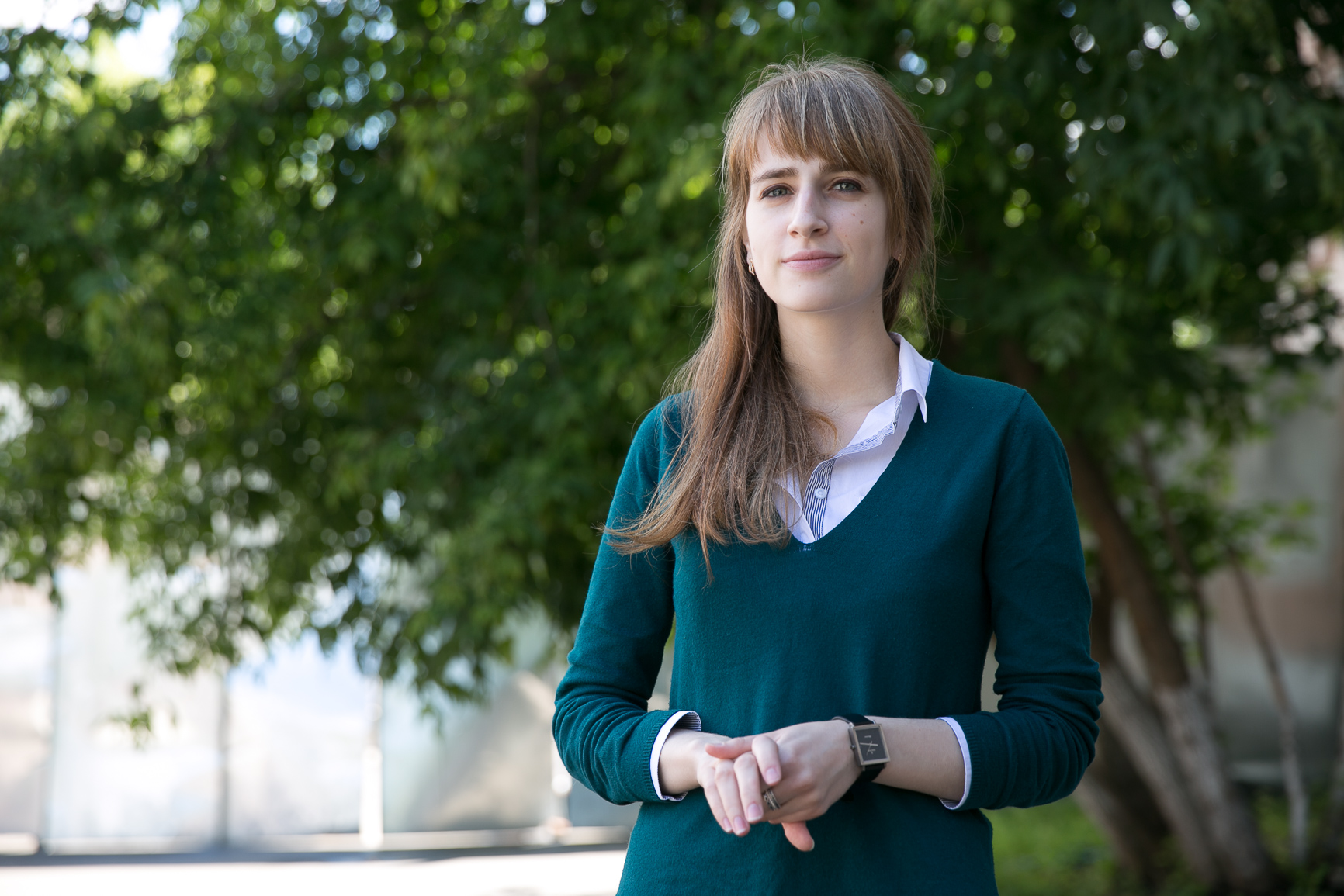Now in its Sixth Year, Russian-Chinese Summer School Becomes a Truly International Event
On July 6, 2016, the VI International Russian-Chinese Summer School on International Affairs came to a close. Run jointly by the HSE Faculty of World Economy and International Affairs and East China Normal University, with sponsorship provided by the Gorchakov Fund, this year’s school focused on the role of institutions in the new global governance architecture.
The school was open not only to undergraduate and graduate students from Russia and China, but also to those from other countries. The programme included lectures by Russian and Chinese guest speakers on various aspects related to cooperation in BRICS, as well as the role that BRICS plays in global political and economic governance. There was also a simulation game on Eurasian integration and the Silk Road Economic Belt conducted by Yuval Weber and Andrej Kriсkovic, HSE Assistant Professors. Participants also worked together on group projects.
Timofey Bordachev, head of the summer school and Director of the HSE Centre for Comprehensive European and International Studies (CCEIS), says that the summer school remains the only such school on Russian-Chinese relations in Russia. ‘The tradition of inviting students and professors from China for serious discussions and lectures has not yet become entrenched in Russia. The inertia from almost total orientation toward the West is still with us, so our project is unique. We plan to continue and expand it.
The school has created a community of people with an interest in Russia and China. Besides, it gives participants intensive academic experience.
Over the six years that the school has been in existence, the topics offered to participants have become ever more comprehensive, deep and universal in nature. Next year, we plan to address not only substantive issues, but also methodological questions relating to the study of international relations. This idea was suggested by our Chinese partners, which we gladly accepted. The school has already grown to a level that justifies methodological measurement. This is important since it allows Russian and Chinese experts to take a similar approach to problems. The school has created a community of people with an interest in Russia and China. Finally, it gives participants intensive academic experience.’
At the opening of the school, Sergey Karaganov, the Dean of Faculty of World Economy and International Affairs, delivered a lecture entitled ‘The World in Transition: Global and Regional Aspects’ in which he offered a complex analysis of key global and regional trends that are currently forming the contours of the international system.
During the summmer school, lectures were also delivered by Feng Shaolei, Director of the Centre for Russian Studies at East China Normal University; Ivan Timofeev, Programme Director of the Russian International Affairs Council (RIAC); Li Xiaoting and Zhang Xin, Professors of East China Normal University; Tatyana Flegontova from Russian Apec Study Centre; Georgy Toloraya, Executive Director of Russian National Committee on BRICS research; Igor Makarov, Academic Supervisor of HSE’s undergraduate programme in World Economy; Andrey Skriba from HSE Centre for Comprehensive European and International Studies; and others.
The school included a roundtable with representatives of Russia’s Ministry of Economic Development and Ministry of Finance. Among those present were Dmitry Ontoev, Sofia Troshina, and Ekaterina Romanchuk. The main issue discussed at the roundtable was the development of Russian-Chinese economic cooperation. Another roundtable was organised by the Gorchakov Fund.
For our students it’s a great opportunity to experience Russia as a great country and a great civilization.

Zhang Xin
Professor of East China Normal University
As Zhang Xin, professor of East China Normal University, states, ‘There have been some important changes in the school recently. Its scale is expanding, and we are now recruiting students beyond our home base. From our side we have not only Chinese students, but also Russians and an Uzbek who are currently studying in China. From the HSE side, there are two Chinese students, one Italian, and one Brazilian. So, we have a truly international group.
For our students it’s a great opportunity to experience Russia as a great country and a great civilization. For many of them it’s their first overseas trip. In a sense, it’s an eye-opening, one-in-a-lifetime experience to remind them that apart from the U.S., there is a world outside of China. This is useful in overcoming some stereotypes. This is also a great opportunity for students to work in an international context and to experience different perceptions of the same topic. It’s good to see a different type of narrative and new interpretations.
The school is very serious academically. The group presentations were very strong; some of them were just one or two steps away from being ready for serious academic publication’.

I decided to apply to this summer school because I met a friend from HSE this year. I have never been to Russia before – it’s such a big country. It’s really exciting for me to be here in Russia’s biggest city. I think the students here are very smart and it’s very interesting to work together. Furthermore, it’s easy to communicate with them because they have fluent English.
They have a clear plan for their thesis. During the school I could discuss my thesis with other students, which was very helpful. I am focusing on European trade union confederation, and I have met some students here who are also working on Europe, so we had an opportunity to discuss Brexit and other issues. It was very useful for me.
The volunteers and organizers of the school were exceptionally friendly and helpful, which I really appreciated. I’ve made many new friends here.
During the summer school I was in the group working on the Shanghai Cooperation Organisation – we were curious to know what kind of role it can play in global governance. We analyzed the current situation and future prospects.

I enjoyed taking part in the school – it was my first experience like this. The lectures by the Russian and Chinese professors were excellent. We worked on a project called ‘The Political Image of BRICS in Russia and China’, which received high marks from the jury of teachers. The school gave me a great opportunity to expand my range of interests, not only thanks to the rich lectures, but also to interaction with other participants.

I came to Russia last year to study Russian language. I spent five months in Moscow and then went to study Russia’s energy sector at the University of Tyumen, in Siberia. My professor there told me about this project and I decided to apply because it sounded interesting. My research in Brazil and my decision to study in Russia are related to BRICS. Russia and China are involved in providing institutions and think tanks for BRICS policy development. In Brazil this movement is not so developed.
It’s a pleasure for me to come to this summer school to understand how Russia treats BRICS strategy and how the country fits into BRICS. I could also learn how China views BRICS in its long-term strategy. I got a clear understanding of the institutions that Russia and China are working together on, such as the Shanghai Cooperation Organisation and the Eurasian Economic Union. Moreover, the school gave me an opportunity to meet many interesting people and discuss various issues with them. For our group project, we were looking into the new Development Bank because BRICS countries need to increase the rate of direct investment and encourage more long-term investment. While we sometimes had different opinions on certain issues, we were able to create a common vision so that our differences became smaller.

I learned about the school by chance by finding information online. The topics interested me, so I submitted an application. I was really happy when I arrived here. My main interests are culture and civilizational characteristics of China and India, so I wanted to see how culture and institutions are interrelated. The lectures by the Chinese professors were really interesting, especially on the Silk Road, Chinese diplomacy and the theory of institutionalism. It’s great that they invited Alexander Gabuev, chair of the Russia in the Asia-Pacific Program at the Carnegie Moscow Center.
For the group project we analyzed the role of the Shanghai Cooperation Organisation at the global and regional levels. I examined the cultural and historical antecedents for cooperation and their level of influence. Other members of the group worked on the political and economic aspects. For me the most valuable aspect of the school was the opportunity to be in contact with lecturers on topics that I find interesting.
Photos by Kirill Krivosheev and Alexey Pakhomov, HSE
See also:
Cardiogenetics of the Future: Sequencing Helps Treat Heart Disease
Future cardiologists, geneticists, and IT specialists gathered at HSE University to learn how to 'read' DNA for diagnosing cardiovascular diseases. They explored modern sequencing methods and the complexities of working with digital twins of cardiac patients.
Archival Impulse: Dubna Hosts Summer School Organised by HSE University and JINR
The Joint Institute for Nuclear Research (JINR) in Dubna hosted the Archival Impulse Summer School, co-organised by JINR physicists, historians from the HSE Faculty of Humanities, and staff from the Archives of the Russian Academy of Sciences (ARAS). This first archival summer school continued the joint initiative of HSE University and JINR to examine and preserve the unique historical legacy of physicists.
HSE Shares Its Experience of Urban Strategies at International Summer School in China
In the context of intensifying global geopolitical and technological competition, leading Chinese educational institutions—Zhejiang International Studies University and Peking University—organised an International Summer School. Their joint programme focused on studying global, regional, and urban development strategies. The HSE Faculty of Urban and Regional Development took part in this event.
HSE GSB and Alfa-Bank Host Summer School for Chinese Students
The international summer school Digital Product Management, a joint educational project by the HSE Graduate School of Business (HSE GSB) and Alfa-Bank, brought together over 30 students from leading Chinese universities.
HSE University Students and Postgraduates Take Part in Peking University International Summer School
In July 2025, Peking University hosted its annual Quantum Molecular Dynamics Summer School, which has moved onto an international stage. Its first foreign guests were students and postgraduates from the HSE Tikhonov Moscow Institute of Electronics and Mathematics (MIEM). They took part in an extensive academic programme and had the opportunity to visit a laboratory that works with optoelectronic materials and energy devices.
‘Student Ideas Shed Light on Key Challenges for Urban Development’
The first international joint summer school of the Vysokovsky Graduate School of Urbanism (GSU) at both the HSE Faculty of Urban and Regional Development and Brest State Pushkin University (BrSU), hosted by BrSU, has come to a close. The programme focused on studying buffer zones along the railway lines encircling the city centre. Participants included students from the GSU’s Urban Planning degree programme, as well as students from BrSU and Brest State Technical University.
‘A Laboratory at 3,000 Metres’: HSE University–St Petersburg to Start Call for First Summer School in Himalayas
HSE University–St Petersburg has announced the call for the Summer School in the Himalayas, which will take place from June 30 to July 13, 2025. The Summer School is the follow-up to two expeditions in the Himalayas organised by the St Petersburg School of Social Sciences in 2024. The programme allows bachelor's, master's, and PhD students to immerse themselves in research on climate change and sustainability in local communities in the unique natural laboratory of the Himalayan region.
From Sequencing to Constructing a Cardio Panel: Summer School in Cardiogenetics
From August 19 to 29, the Continuing Professional Development Centre of the HSE Faculty of Computer Science hosted the summer school 'Cardiogenetics: From Sequencing to Constructing a Cardio Panel,' organised in collaboration with the Russian Academy of Sciences' Institute of Analytical Instrumentation (IAI) and Institute of Spectroscopy (ISAN), and the Syntol company. The summer school was conducted within the framework of the Federal Research Programme for Genetic Technologies Development for 2019–2027 (Project 15.IP.21.0004).
'These Are Unforgettable Impressions, I Will Cherish Them Forever'
HSE St Petersburg International Summer School is in full swing—right now, international students from 12 countries are attending lectures and enjoying the cultural programme. The HSE News Service talked to the participants about their most vivid impressions.
HSE University-St Petersburg Hosts Students from 12 Countries at the International Summer School
On July 10, HSE University-St Petersburg launched the International Summer School—a series of classes for students from India, Vietnam, the Republic of Korea and other countries. Foreign guests are getting to know the university, attending lectures in six fields of study, and enjoying an inspiring cultural programme.



Timofey Bordachev
Director of the Centre for Comprehensive European and International Studies (CCEIS)